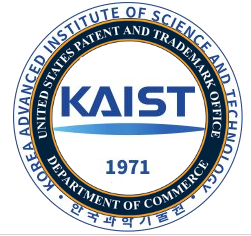
 Summary: The proponents of software patents (for personal financial reasons) carry on promoting HEVC, which is neither necessary nor beneficial; in fact, patents that it is built upon are software patents, which are almost entirely invalid (upon legal challenge)
Summary: The proponents of software patents (for personal financial reasons) carry on promoting HEVC, which is neither necessary nor beneficial; in fact, patents that it is built upon are software patents, which are almost entirely invalid (upon legal challenge)
THERE'S an abundance of free codecs these days. Multimedia can be properly encoded and compressed using Free (as in freedom as well as price) software. Ogg, VP8/9 and various other options exist with similar ones for real-time streaming. But there are those who want to pocket billions of dollars by pushing to the public -- typically through the World Wide Web -- patent-encumbered and nonfree formats/standards. This isn't a new problem, but it still needs tackling.
As we noted the other day, IAM's latest issue (magazine) contained HEVC boosting. see HEVC articles in Techrights (old and more recent) for background on this; it's pretty nasty a substitute if not sequel for the MPEG thicket (enforced by a patent troll). Richard Lloyd, the software patents pusher, was flagrantly pushing HEVC yesterday. To quote:
As IAM has covered over the last few years, patent pools appear to be gaining in popularity, in part because the tough licensing environment has encouraged patent owners in particular to seek out ways to make the dealmaking process much more efficient. In the last couple of years we have seen the emergence of two new platforms - Avanci and Velos Media - focused on mobile technology in auto and the Internet of Things and video compression respectively, while others such as Via Licensing have overhauled their approach to emerging markets such as China.
[...]
However in contrast to MPEG-2 where the MPEG-LA administered pool was the only show in town, HEVC is the focus of three competing pools — one from MPEG-LA, HEVC Advance and Velos. Like Avanci, Velos doesn’t pitch itself as a pool but it has many of the same characteristics.
A recent announcement by the HEVC Advance patent pool names the Korea Advanced Institute of Science and Technology (KAIST) as one of a handful of new members from that country. The news comes just a few months after the top national polytechnic launched its most ambitious assertion effort to date against Apple.
KAIST’s move to a new pool appears to be part of the latest shift in the fraught ongoing effort to create a patent pool to license patents related to the H.265 video compression standard. Other Korean entities including the Korean Aerospace University, the Korean Broadcast System...
On April 7, 2018, Unified filed a petition for inter partes review (IPR) against U.S. Patent 8,934,535 owned and asserted by Realtime Adaptive Streaming, LLC, a Realtime Data affiliate and well-known NPE. The '535 patent, directed to a selecting an asymmetric compressor algorithm for compressing data, storing the compressed data, and decompressing the data, has been asserted in multiple cases against such companies as Samsung, Adobe, Apple, Netflix, Sony, Polycom, Cisco, Hulu, Echostar, Amazon, Sling TV and others.
Machine Learning (ML) is one of the hot topics in the technological space and everyday there are better improvements that come up in this field. The number of algorithms and techniques in ML are progressively increasing with researchers and engineers working hard towards its implementation and benefits.
This leads to the question of patenting in ML. Be it a person, a team or an organisation who discover a process, the aspect of filing a patent is sometimes cumbersome and, on top of that encompasses legal and ethical perspectives as well. One wrong step in either of the two, and it may land up in trouble. Although, the number of patents in ML are observing a rise among technology companies, the challenges in filing patents cannot be overlooked. This calls for ML patents to be a topic of debate with critics arguing and providing varied reasons on both the good as well as bad sides of it.
[...]
Conclusion:
In light of the above instances, it can be seen that ML inventions and their patent-filing attract considerable attention from respective governments citing legal and ethical issues. Experts suggest that the inventions focus more on real value and address actual problems instead of just getting patents. Therefore, a lot of thought is to be put before anyone working on ML stumbles across a new idea or algorithm.